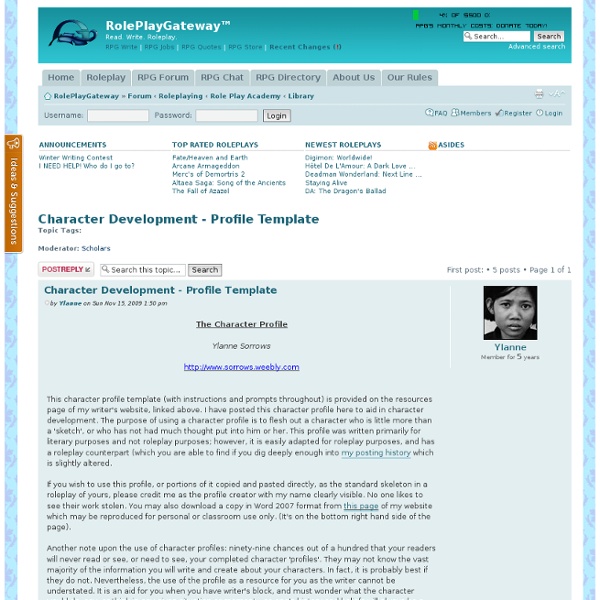Character Development - Profile Template : Library

http://www.roleplaygateway.com/character-development-profile-template-t32760.html
Tips for Plotting: How to Create a Fascinating Plot for Your Story
Fictional plots are sometimes difficult to conceive, but once you understand the formula, creating interesting and exciting plots for your stories will become second nature. The key to successful plotting is answering questions because that is what a story is based on. When you first read a book, several questions are posed through the exposition and through dialogue, the majority of which are not answered until the last chapter. As the author, however, you will need to know the answers before you even begin writing. Following are fourteen questions that you should ask yourself before you begin writing a novel or a short story. They will provide the basis for your plot, which can be as simple or as complex as you'd like.
Related:




In this industry, accreditations from Google are a must! Since 2006, Bloom Digital Marketing has been a trusted Premier Google Partner. By working with a Premier Google Partner you can be confident that your online presence is in the right hands. WEBSITE DESIGN Cityline Websites is now providing fully responsive design websites, customized to your requests. A responsive web design is a design that adapts to ... by jonhvonmon Apr 16